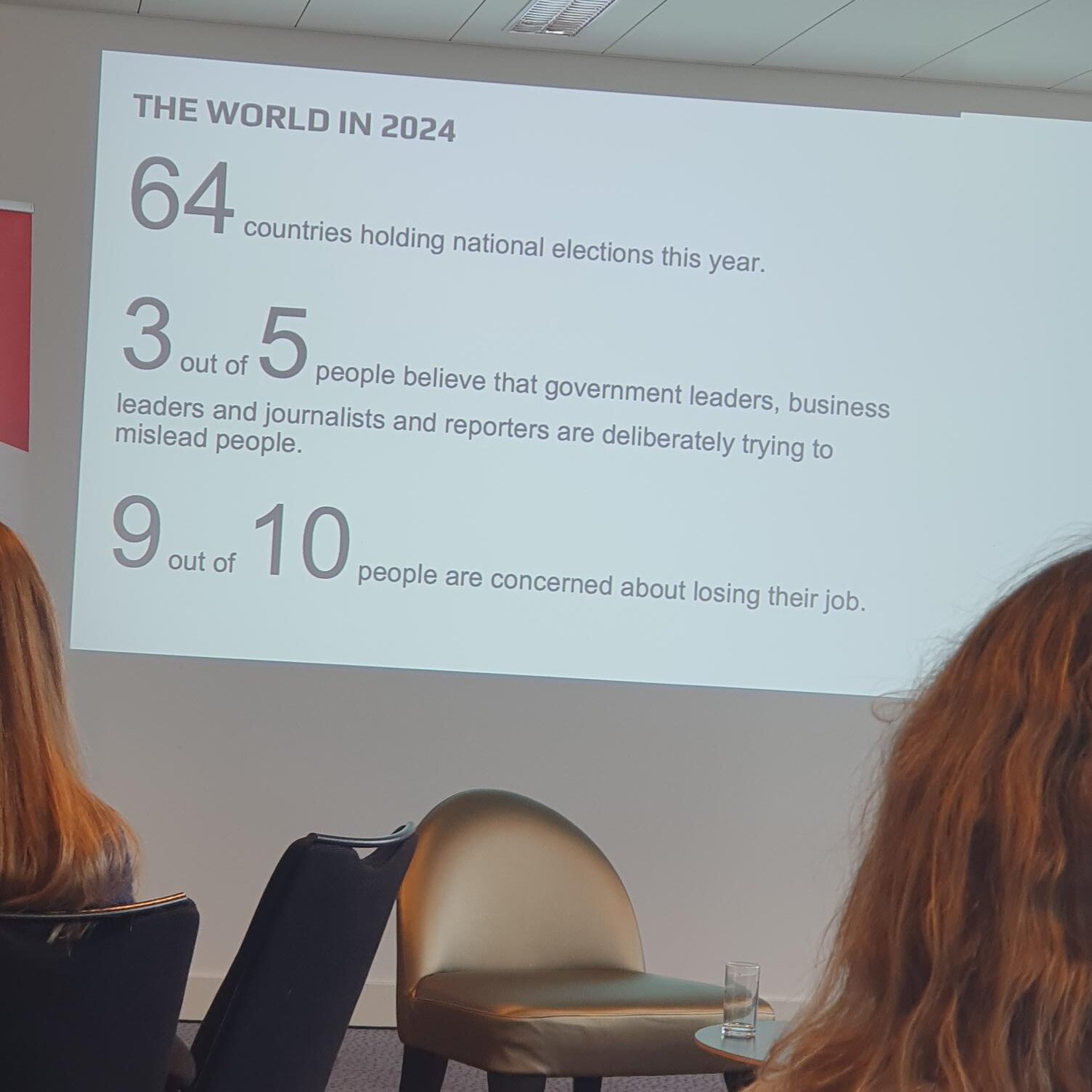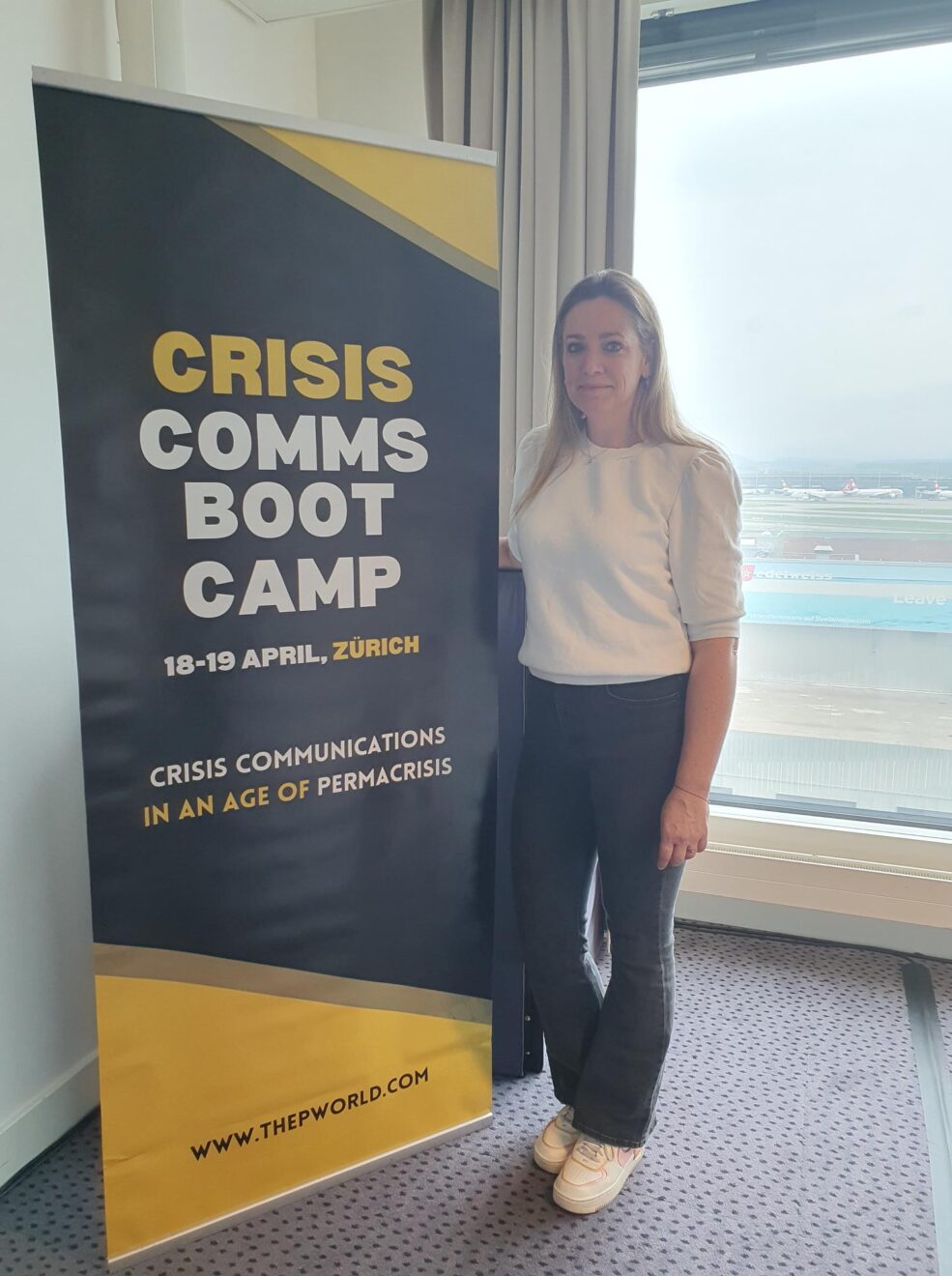I was recently at an international crisis communications summit in Zurich. Were also in attendance: communication professionals from Bayer, Vinted and Hugo Boss, and many others. Compelling speakers took the stage, including the former Press Secretary of King Charles III, the organiser of the Dutch Eurovision Song Contest that was cancelled because of Covid and a professor who conducted research on the communication around the Genoa bridge collapse.

But what struck me in particular was Nathaniel Davis’s presentation. He calls himself “A 20-year veteran of Multinational Corporate Affairs and Crisis Management Teams & Programmes.”
This man has worked for TotalEnergies, Shell, AstraZeneca and Roche, among other corporations. He can no longer count the crises he has had to face on both hands. Moreover, he talks about the state of ‘permanent crisis’ which companies and organisations are nowadays facing. And he is right. The potential crises are coming from all sides: climate, human rights, wars, energy, regulation, political instability and therefore stock market instability, and so on.
One striking figure the man presented was that 3 out of 5 people worldwide think that governments, journalists as well as business leaders deliberately want to mislead them. As a result, those same people (or consumers) have high expectations of those business leaders and companies : especially in terms of ‘corporate empathy and honesty’. In other words: companies should communicate honestly and empathetically about ‘what they stand for’ and the same is expected of their products or services.

An article by Korneel Delbeke in De Standaard entitled ‘‘Cultuuroorlogen nemen Amerikaanse bedrijven in de tang (Culture wars take US companies by storm)’ also exposes these expectations consumers have of said companies.
Pick a side
In the corridors of the Zurich conference hotel, another speaker from US company Equifax put it like this: “In America you have to pick a side”. There is a real expectation as a company there to be for or against LGBTQIA+ rights, to believe in global warming or not, or to be pro-Israel or pro-Gaza.
Zurich also cited the example of American beer maker Bud Light that pulled the LGBTQIA+ card in an advertising campaign. Whereupon the ‘working class’ beer-drinking American refused to buy Bud any longer, resulting in a huge drop in sales. Whereupon AB Inbev, the parent company of Bud and Bud Light promptly withdrew the ad campaign and consequently had the entire LGBTQIA+ community against them.
This example proves the difficulty of ‘picking a side’. You cannot do right by everyone. Especially in a world where so many issues are (politically) sensitive and where there is a risk everywhere of a small but very vocal – and quickly found by the media – group turning against your company or product/service.
How to handle permanent crises?
In the Zurich corridor, there was some back-and-forth discussion, and we came to a few conclusions as an international communications team:
- It is not a question of WHETHER the US ‘pick a side’ model will blow over to Europe, but WHEN. (The fact that students at various universities, among others, are demanding that ties with Israel be cut already proves this).
- The pick-a-side story is best approached from the principles of crisis communication: We know, We do, We care and We will be back.
- A permanent crisis also requires permanent preparation. Because every communication professional knows that good preparation largely determines the success of your crisis communication. ‘Si vis pacem para bellum’. If you want peace, prepare for war.
As a company or organisation, you prepare for a (communication) war by carrying out a risk assessment and having communication plans ready for the highest risks. And look beyond the mere recall of a product or unavailability of a raw material. Getting caught in the eye of a ‘woke storm’ can be just as damaging to your reputation, and therefore your turnover, as a product recall. So also look at which social issues within the permanent crisis could affect your business. In concrete terms, this means having your communication team sit around the table when drawing up such a risk assessment, listening to them and preparing yourself – also in terms of communication. And if there is still room at that table, I am more than happy to join the conversation 😉
An Luyten, expert in crisis communication

